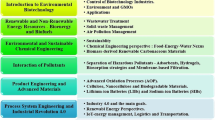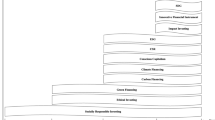Abstract
Enhancing the energy transition of the Chinese economy toward digitalization gained high importance in realizing SDG-7 and SDG-17. For this, the role of modern financial institutions in China and their efficient financial support is highly needed. While the rise of the digital economy is a promising new trend, its potential impact on financial institutions and financial support is unproven. For this, this research intended to study how financial institutions assure financial support for China’s energy transition toward digitalization. To attain this purpose, DEA analysis and Markov chain techniques are applied to the Chinese data from 2011 to 2021. The results estimated that the transition of the Chinese economy toward digitalization significantly depends upon the digital services of financial institutions and extended digital financial support. The extent of the digital energy transition in China can enhance economic sustainability. The role of Chinese financial institutions accounted for 29.86% of the total effect in transiting China’s digital economy. In comparison, the part of digital financial services is found to be significant, with a score of 19.77%. The Markov chain estimates revealed that the digitalization of financial institutions is 86.1%, and financial support is 28.6% important for the digital energy transition of China. The Markov chain result caused a digital energy transition of 28.2% in China from 2011 to 2021. The findings highlighted that China still warrants more prudent and active efforts for financial and economic digitalization, for which the primary research also presents multiple policy recommendations.
Similar content being viewed by others
Data availability
The data that support the findings of this study are openly available on request.
References
Ahmad B, Iqbal S, Hai M, Latif S (2022) The interplay of personal values, relational mobile usage and organizational citizenship behavior. Interact Technol Smart Educ 19(2):260–280
Bachas P, Gertler P, Higgins S, Seira E (2018) Digital financial services go a long way: transaction costs and financial inclusion. In AEA papers and proceedings 108:444–48
Banker RD, Charnes A, Cooper WW (1984) Some models for estimating technical and scale inefficiencies in data envelopment analysis. Manage Sci 30(9):1078–1092
Bilal AR, Fatima T, Iqbal S, Imran MK (2022) I can see the opportunity that you cannot! A nexus between individual entrepreneurial orientation, alertness, and access to finance. Eur Bus Rev 34(4):556–577
Bris M, Pawlak J, Polak JW (2017) How is ICT use linked to household transport expenditure? A cross-national macro analysis of the influence of home broadband access. J Transp Geogr 60:231–242
Chang L, Iqbal S, Chen H (2023) Does financial inclusion index and energy performance index co-move? Energy Policy 174:113422
Fare R, Grosskopf S, Lovell CK (1994) Production frontiers. Cambridge university press
Gibson E, Lupo-Pasini F, Buckley RP (2015) Regulating digital financial services agents in developing countries to promote financial inclusion. Singapore J Legal Stud 26–45
Gurusamy S (2009) Financial services and system. Tata McGraw-Hill Education Private Limited
Huo D (2013) Cluster analysis of market potential in emerging markets: a dynamic research based on Markov chain. J Econ Forecast 4:218–231
Huo D, Chen Y, Hung K, Song Z, Guan J, Ji A (2020) Diamond model and the export competitiveness of the agriculture industry from emerging markets: an exploratory vision based on a spatial effect study using a genetic algorithm. Econ Res-Ekonomska Istraživanja 33(1):2427–2443
Iqbal S, Bilal AR (2021) Energy financing in COVID-19: how public supports can benefit? China Finance Rev Int 12(2):219–240
Iqbal S, Bilal AR, Nurunnabi M, Iqbal W, Alfakhri Y, Iqbal N (2021) It is time to control the worst: testing COVID-19 outbreak, energy consumption and CO2 emission. Environ Sci Pollut Res 28:19008–19020
Ishida H (2015) The effect of ICT development on economic growth and energy consumption in Japan. Telematics Inform 32(1):79–88
Karlan D, Kendall J, Mann R, Pande R, Suri T, Zinman J (2016) Research and impacts of digital financial services (No. w22633). National Bureau of Economic Research
Kostousova YA, Komarova OV (2019) Tsifrovizatsiya gosudarstvennogo finansovogo kontrolya: institutsional’nyy analiz. Zhurnal Ekonomicheskoi Teorii 15:842–848
Kuznetsov NV, Ekimova KV, Larina OI, Lizyaeva VV (2021) Financial systems development in a digital economy. In "Smart technologies" for society, state and economy 13. Springer International Publishing, pp. 1248–1255
Li J, Lin B (2017) Does energy and CO2 emissions performance of China benefit from regional integration? Energy Policy 101:366–378
Li W, Chien F, Ngo QT, Nguyen TD, Iqbal S, Bilal AR (2021) Vertical financial disparity, energy prices and emission reduction: empirical insights from Pakistan. J Environ Manage 294:112946
Mi Z, Meng J, Guan D, Shan Y, Song M, Wei YM, ... Hubacek K (2017a) Chinese CO2 emission flows have reversed since the global financial crisis. Nat Commun 8(1):1712
Mi Z, Wei YM, Wang B, Meng J, Liu Z, Shan Y, ... Guan D (2017b) Socioeconomic impact assessment of China’s CO2 emissions peak prior to 2030. J Clean Prod 142:2227–2236
Ozili PK (2018) Impact of digital finance on financial inclusion and stability. Borsa Istanbul Rev 18(4):329–340
Shan HJ (2008) Reestimating the capital stock of China: 1952–2006. J Quant Tech Econ 10:17–31
Shan Y, Guan D, Liu J, Mi Z, Liu Z, Liu J, ... Zhang Q (2017) Methodology and applications of city level CO2 emission accounts in China. J Clean Prod 161:1215–1225
Sheffrin SM, O’Sullivan A (2006) Economics: principles and tools. Prentice hall
Sun L, Fang S, Iqbal S, Bilal AR (2022) Financial stability role on climate risks, and climate change mitigation: implications for green economic recovery. Environ Sci Pollut Res 29(22):33063–33074
Tang C, Xu Y, Hao Y, Wu H, Xue Y (2021) What is the role of telecommunications infrastructure construction in green technology innovation? A firm-level analysis for China. Energy Econ 103:105576
Tu CA, Chien F, Hussein MA, Yanto Ramli MM, Psi MSS, Iqbal S, Bilal AR (2021) Estimating role of green financing on energy security, economic and environmental integration of BRI member countries. Singap Econ Rev:1–19
van den Buuse D, Kolk A (2019) An exploration of smart city approaches by international ICT firms. Technol Forecast Soc Chang 142:220–234
Wang S, Sun L, Iqbal S (2022) Green financing role on renewable energy dependence and energy transition in E7 economies. Renew Energ 200:1561–1572
Wu H, Hao Y, Ren S, Yang X, Xie G (2021a) Does internet development improve green total factor energy efficiency? Evidence from China. Energy Policy 153:112247
Wu J, Feng Z, Tang K (2021b) The dynamics and drivers of environmental performance in Chinese cities: a decomposition analysis. Environ Sci Pollut Res 28:30626–30641
Yakunina AV, Yakunin SV (2018) Tsifrovizatsiya finansovogo sektora: novye vozmozhnosti i novye riski. Upravlenie Finansovymi Riskami v Tsifrovoy Ekonomike 3:70–79
Yang Y, Liu Z, Saydaliev HB, Iqbal S (2022) Economic impact of crude oil supply disruption on social welfare losses and strategic petroleum reserves. Resour Policy 77:102689
Zhang L, Huang F, Lu L, Ni X, Iqbal S (2022) Energy financing for energy retrofit in COVID-19: recommendations for green bond financing. Environ Sci Pollut Res 29(16):23105–23116
Zhao L, Saydaliev HB, Iqbal S (2022) Energy financing, COVID-19 repercussions and climate change: implications for emerging economies. Clim Chang Econ 13(03):2240003
Zheng X, Zhou Y, Iqbal S (2022) Working capital management of SMEs in COVID-19: role of managerial personality traits and overconfidence behavior. Eco Anal Policy 76:439–451
Zhu R, Lin B (2021) Energy and carbon performance improvement in China’s mining industry: evidence from the 11th and 12th five-year plan. Energy Policy 154:112312
Author information
Authors and Affiliations
Contributions
Conceptualization, methodology, and writing—original draft: Xiyan Zhang; data curation, visualization, and editing: Na Chen.
Corresponding author
Ethics declarations
Ethical approval and consent to participate
We declare that we have no human participants, human data, or human issues.
Consent for publication
We do not have any individual person’s data in any form.
Competing interests
The authors declare no competing interests.
Additional information
Responsible Editor: Nicholas Apergis
Publisher's note
Springer Nature remains neutral with regard to jurisdictional claims in published maps and institutional affiliations.
Rights and permissions
Springer Nature or its licensor (e.g. a society or other partner) holds exclusive rights to this article under a publishing agreement with the author(s) or other rightsholder(s); author self-archiving of the accepted manuscript version of this article is solely governed by the terms of such publishing agreement and applicable law.
About this article
Cite this article
Zhang, X., Chen, N. Does financial institutions assure financial support in a digital economy for energy transition? Empirical evidences from Markov chain and DEA technique. Environ Sci Pollut Res 30, 63825–63838 (2023). https://doi.org/10.1007/s11356-023-26807-7
Received:
Accepted:
Published:
Issue Date:
DOI: https://doi.org/10.1007/s11356-023-26807-7




